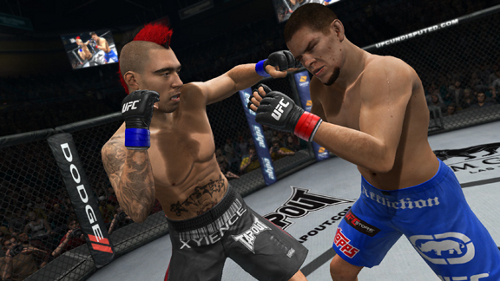UFC 3 Showed Value of Extra Development Time But Realities of the Current Market

Outside of a failure to produce a quality online experience UFC Undisputed 3 delivered a significant advancement over the previous iteration in the series with well-recognized gameplay enhancements and a deep suite of features. The struggles of UFC 2010 forced THQ to reevaluate the viability of the product and ultimately to a decision to move off a yearly release schedule. Despite a nearly two year layoff not only did sales fail to increase but they fell 18% from UFC 2010 which itself was down 59% from UFC 2009.
Disappointment with various sports franchises over this generation has led to a growing swell of calls for alternate development methods. The most popular suggestion is to shift to bi-annual releases where they would be granted the benefits of longer development periods. That however is not a feasible solution. It doesn’t make any fiscal sense and league licenses require they release yearly regardless.
There’s a misconception that releasing bi-yearly would either build up anticipation beyond normal levels or make the offering’s quality so much greater that sales would increase substantially. UFC 3 and others have shown that definitely isn’t the case – and it wouldn’t be for a franchise like Madden either. The yearly release is still by far the best process for these companies when it comes to the economics of the business. Providing greater downloadable content would not even come close to making up for the lost revenue of not releasing every year while also spending two years worth of development on just one single release. The gap there is so huge that it wouldn’t even be a consideration if they had the option available to do it.
It’s been proven over the last couple years that the central driving force behind consumer interest for sports games are the roster updates that come with each new season. That’s one of the main reasons that UFC has struggled – there is very little turnover in fighter rosters while the major sports leagues all change dramatically with free agency, trades, and drafts. Meanwhile there is always excitement for the latest Madden, NBA, and others because of the new rosters.
A case could be made for college sports, where real players can’t be included thus nullifying some of that, and it could be why I’ve heard EA is working on a college basketball game with a bi-yearly release plan. The cost of licensing there is also much lower than pro sports or even college football though. Since college basketball is a blip on the radar when it comes to sales going bi-yearly or considering other distribution methods like digital make more sense.
The blame for poor efforts now have to be placed on the companies that make the decisions and the development teams which execute them. There are no reasons for excuses anymore. The hardware isn’t new and the development cycle is clearly defined. They know going in what can be accomplished and what can’t. Titles like NBA 2K11 have emerged that show just how much can be accomplished on a yearly cycle when focus and drive are present.
The bottom line is the current development strategies for major sports titles are the way they are for a reason. THQ learned a hard lesson with UFC – extending the development cycle doesn’t necessarily equate to an increase in sales.
